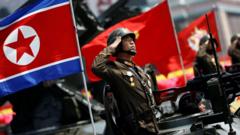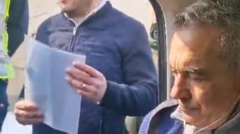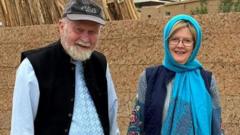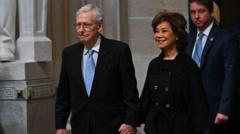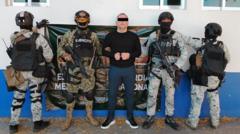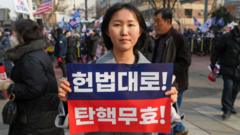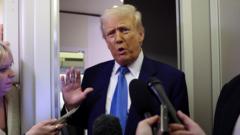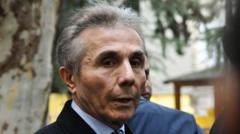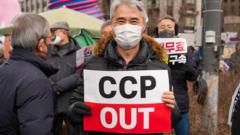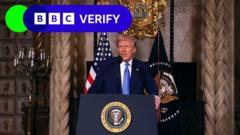South Korea is at a political crossroads as the nation navigates the fallout from the impeachment of President Yoon Suk Yeol, recently indicted on insurrection charges for his controversial declaration of martial law and subsequent actions.
South Korea's President Indicted on Insurrection Charges Amid Turmoil

South Korea's President Indicted on Insurrection Charges Amid Turmoil
Former President Yoon Suk Yeol faces charges as turmoil grips South Korea following his brief martial law.
South Korea’s impeached president, Yoon Suk Yeol, has been indicted on insurrection charges stemming from his brief martial law imposition last month. The indictment, announced on Sunday, signifies the beginning of what may be a historic trial, as he stands alongside his former defense minister and several other high-ranking military and police officials who are facing similar charges. This moment marks a unique instance in South Korean history, being the first time an active president has been charged with a crime while in office.
The political crisis unfolded when Yoon declared martial law on December 3, claiming that his governance was being impeded by the opposition-controlled National Assembly. However, after a swift rejection of the measure by the Assembly, he rescinded his order within six hours. This led to widespread public outrage, culminating in his impeachment on December 14, with ongoing deliberations by the Constitutional Court to decide on the legitimacy of the impeachment.
Yoon’s arrest on January 15 further escalated the political situation, resulting in strong public support for his impeachment, with polls indicating that a majority of citizens view him as guilty of the charges against him. However, his loyalists claim the impeachment process is flawed, leading to unrest, including an incident where individuals vandalized a courthouse in Seoul following a judge’s approval of Yoon’s arrest warrant.
Prosecutors have accused Yoon of ordering military personnel to forcibly breach the Assembly's premises and detain political leaders, actions deemed an insurrection under South Korean law. As the nation watches closely, President Yoon remains determined to contest his ousting and regain his position amidst a backdrop of intense political strife.
The political crisis unfolded when Yoon declared martial law on December 3, claiming that his governance was being impeded by the opposition-controlled National Assembly. However, after a swift rejection of the measure by the Assembly, he rescinded his order within six hours. This led to widespread public outrage, culminating in his impeachment on December 14, with ongoing deliberations by the Constitutional Court to decide on the legitimacy of the impeachment.
Yoon’s arrest on January 15 further escalated the political situation, resulting in strong public support for his impeachment, with polls indicating that a majority of citizens view him as guilty of the charges against him. However, his loyalists claim the impeachment process is flawed, leading to unrest, including an incident where individuals vandalized a courthouse in Seoul following a judge’s approval of Yoon’s arrest warrant.
Prosecutors have accused Yoon of ordering military personnel to forcibly breach the Assembly's premises and detain political leaders, actions deemed an insurrection under South Korean law. As the nation watches closely, President Yoon remains determined to contest his ousting and regain his position amidst a backdrop of intense political strife.




